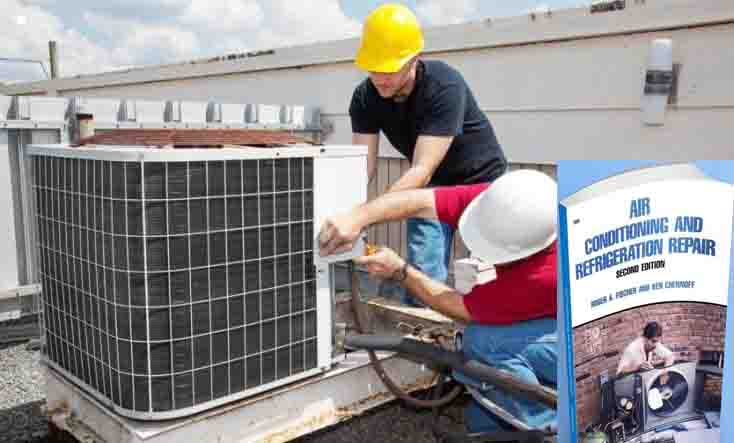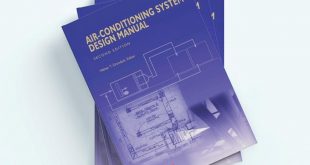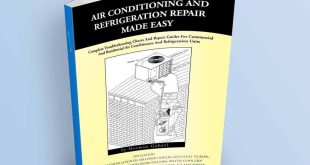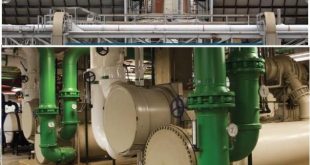Air Conditioning and Refrigeration Repair: Your Complete Guide to Reliable Solutions
Modern life relies heavily on air conditioning (AC) and refrigeration systems, from keeping homes cool to preserving food and medical supplies. When these systems malfunction, timely repair is critical, this guide covers everything you need to know about AC and refrigeration repair, including common issues, maintenance tips, and how to find trusted professionals.
Why AC and Refrigeration Systems Matter
AC units regulate indoor temperatures, improve air quality, and reduce humidity, while refrigeration systems prevent spoilage in homes, restaurants, and healthcare facilities. Regular maintenance and prompt repairs ensure energy efficiency, lower utility bills, and extended equipment lifespan.

Common Air Conditioning Problems
- Refrigerant Leaks: Low refrigerant levels reduce cooling efficiency and can damage the compressor.
- Frozen Evaporator Coils: Caused by poor airflow or low refrigerant, leading to inadequate cooling.
- Faulty Thermostats: Incorrect temperature readings or unresponsive controls disrupt system performance.
- Clogged Filters: Dirty filters restrict airflow, forcing the system to work harder and increasing energy costs.
- Electrical Failures: Worn-out capacitors or wiring issues can prevent the AC from turning on.
Refrigeration System Issues
- Temperature Fluctuations: Faulty compressors or door seals cause inconsistent cooling.
- Excessive Frost Build-Up: Defective defrost mechanisms or airflow blockages impact efficiency.
- Unusual Noises: Grinding or buzzing sounds may indicate motor or fan problems.
- Water Leaks: Clogged drain lines or damaged components lead to pooling water.
- Compressor Failures: Overheating or electrical issues can halt cooling entirely.
Signs You Need Professional Repair
For AC Units:
- Warm air blowing from vents
- Strange odors or loud noises
- Frequent cycling on/off
- Spike in energy bills
- Moisture leaks around the unit
For Refrigeration Systems:
- Food spoiling quickly
- Condensation on internal surfaces
- Continuous running without cooling
- Ice buildup in freezers
- Error codes on digital displays
Why Hire a Professional Repair Service?
- Expert Diagnosis: Trained technicians pinpoint issues quickly, avoiding guesswork.
- Safety Compliance: Handling refrigerants and electrical components requires certified expertise.
- Cost-Effective Solutions: Professionals prevent costly mistakes and future breakdowns.
- Warranty Protection: Many repairs come with service guarantees for peace of mind.
- Time Savings: Skip the DIY trial-and-error with efficient, expert repairs.
DIY vs. Professional Repairs: What’s Safe?
DIY Tasks:
- Replacing air filters
- Cleaning condenser coils
- Clearing debris from outdoor units
- Checking thermostat batteries
Leave to Pros:
- Refrigerant handling or recharge
- Electrical wiring repairs
- Compressor or motor replacements
- Fixing gas leaks in refrigeration systems
How to Choose the Right Repair Company
- Licensing and Certification: Ensure technicians are EPA-certified for refrigerant handling.
- Experience: Look for companies with 5+ years in HVAC and refrigeration.
- Transparent Pricing: Request upfront estimates and avoid hidden fees.
- 24/7 Availability: Opt for providers offering emergency services.
- Customer Reviews: Check Google, BBB, and social media for ratings and testimonials.
Maintenance Tips to Prevent Breakdowns
- Schedule Annual Tune-Ups: Professional inspections catch issues early.
- Clean Coils and Filters: Improve airflow and efficiency monthly.
- Monitor Refrigerant Levels: Low levels signal leaks needing immediate attention.
- Inspect Ductwork: Seal leaks to prevent energy loss.
- Upgrade Smart Thermostats: Optimize temperature settings for energy savings.
FAQs About AC and Refrigeration Repair
Q: How often should I service my AC unit?
A: Aim for bi-annual check-ups—before summer and after winter.
Q: Can I repair a refrigerant leak myself?
A: No. Handling refrigerants requires EPA certification due to environmental regulations.
Q: What’s the average cost of AC repair?
A: Costs range from 100forminorfixesto1,000+ for compressor replacements.
Q: When should I replace instead of repair?
A: If repair costs exceed 50% of a new unit’s price or the system is over 10 years old, consider replacement.
Q: How long do refrigeration repairs take?
A: Most issues are resolved in 2–4 hours, but complex repairs may take longer.
Keep Your Cooling Systems Running Smoothly
Ignoring AC or refrigeration problems risks costly breakdowns and safety hazards. You’ll ensure year-round comfort and reliability by recognizing warning signs, performing basic maintenance, and partnering with licensed professionals. For complex repairs, always trust certified technicians to get the job done safely and efficiently.
Optimize your home’s cooling systems today—schedule a service or consult an expert to avoid unexpected failures!
 Boilersinfo Boiler and Mechanical Power Digital Library
Boilersinfo Boiler and Mechanical Power Digital Library





